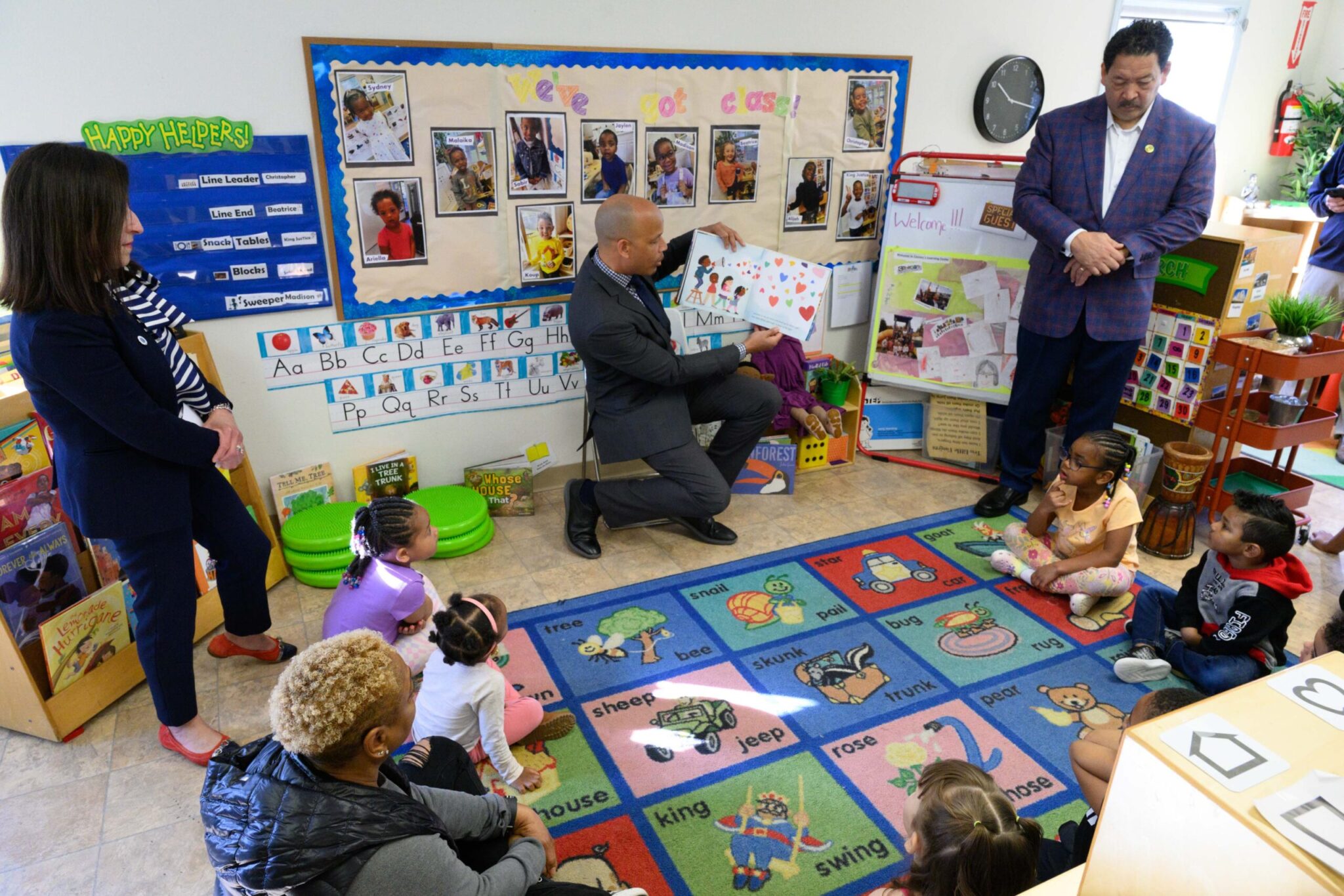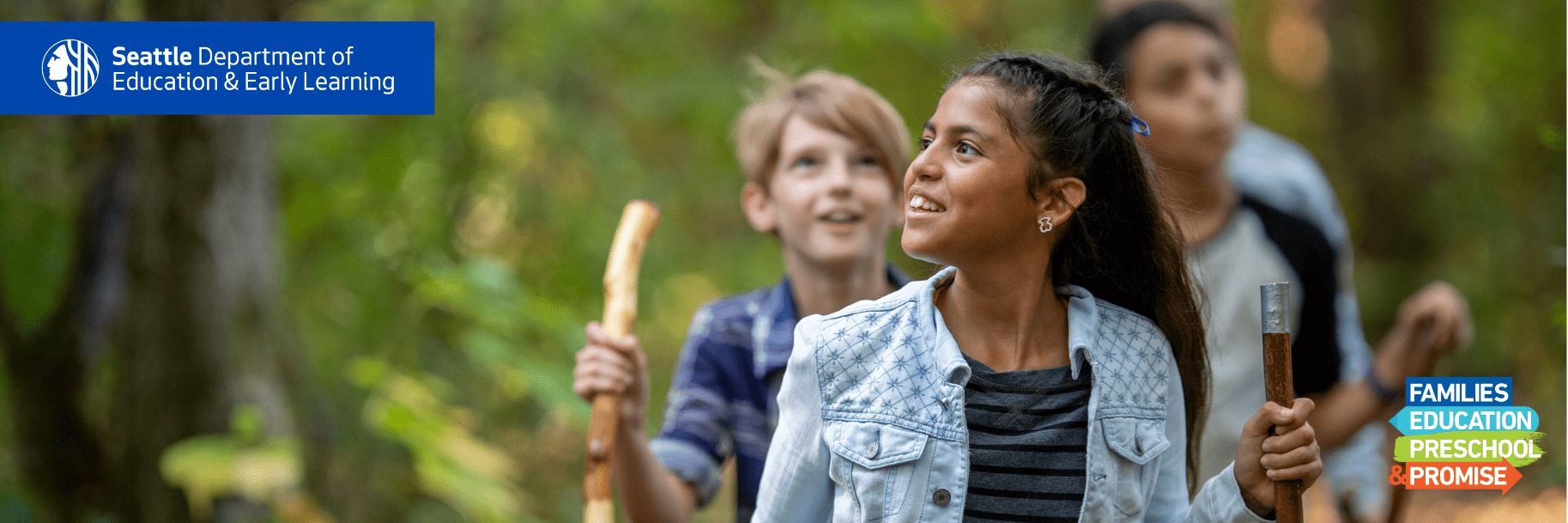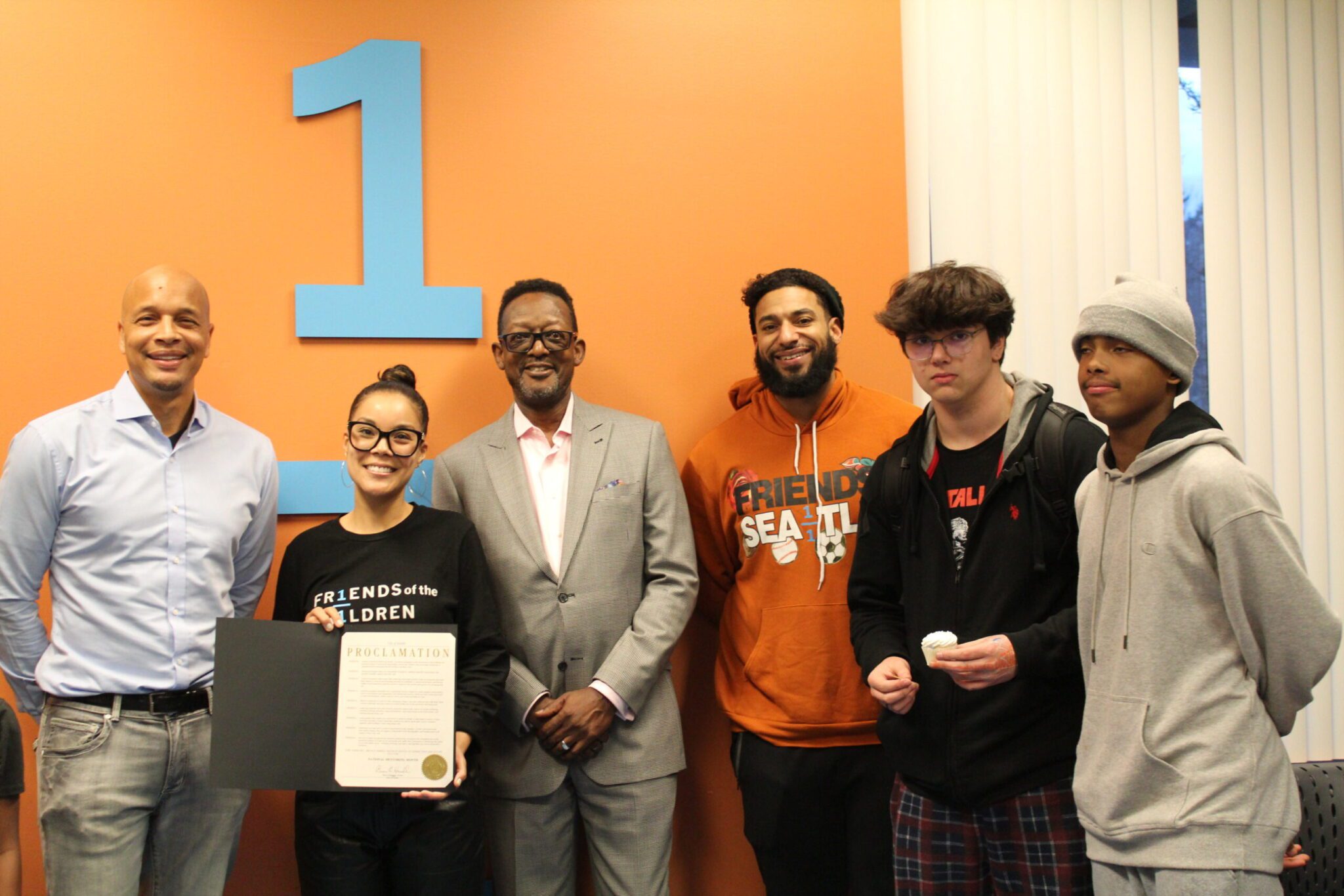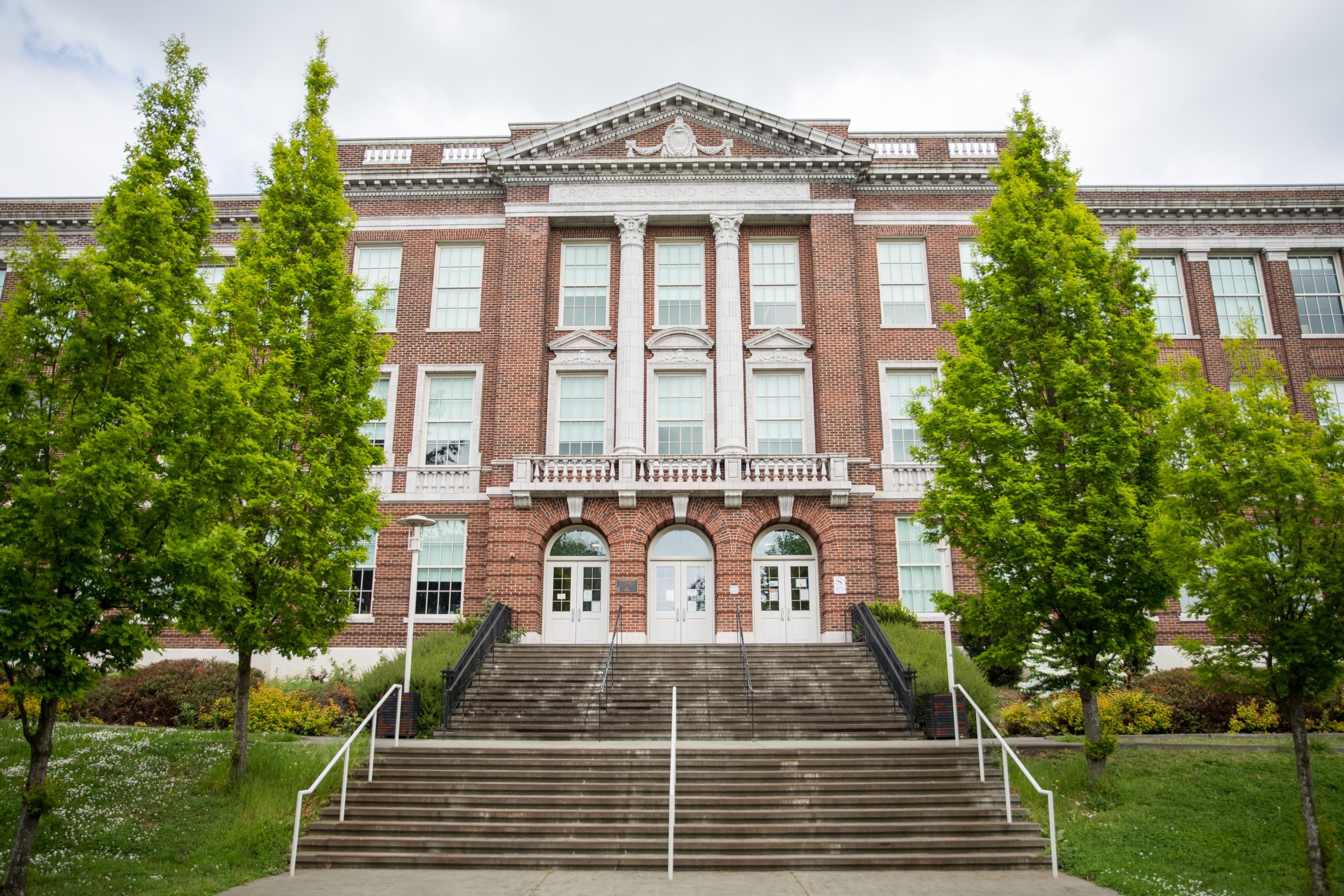 Grover Cleveland STEM High School
Grover Cleveland STEM High School As the 2020-2021 school year nears its end, DEEL is reflecting on the innovative ways our partners pivoted during the pandemic to continue serving Seattle children, youth, and families. This article highlights the work of many of our Levy partner schools who receive School-Based Investment (SBI) awards.
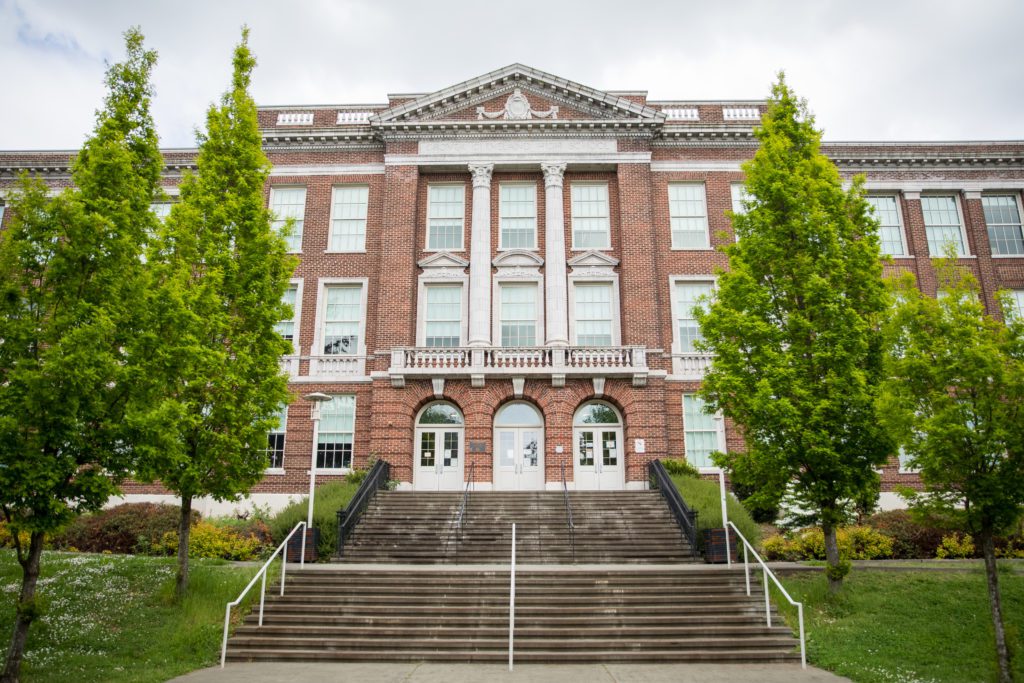
When the pandemic forced school buildings to close and shifted learning online, the risks of missed instructional time, limited social connection, and disruptions in access to vital resources and services disproportionately affected Seattle’s most vulnerable students. Increased academic support, social-emotional services and culturally-responsive teaching practices became more important than ever for student wellness and continued academic success. In response, DEEL’s K-12 partner schools developed innovative strategies that centered educational equity, increased positive family engagement, and supported student learning throughout the COVID-19 crisis.
DEEL’s School-Based Investments (SBI) are part of the Families, Education, Preschool, and Promise Levy passed by voters in 2018. SBI investments provide intensive, supplemental support for a limited number of schools with high concentrations of historically underserved populations and students not yet meeting grade level learning standards. Investments are focused on expanded learning, academic support, social-emotional skill development, college readiness programming, and career exploration experiences.
Below are just a few highlights of the impact DEEL’s school-based investments made for students, families, and educators this year:
Concord International Elementary School conducted two or more home visits for all kindergarteners to help ensure their young learners remained connected to their school community and that their families had the resources they needed to keep their child engaged in online learning. Concord Elementary also created a virtual school tour led by the school’s mascot to help Kindergarten students remember that remote learning is only temporary and that they will be back in school with their teachers and peers again soon.
West Seattle Elementary created student-friendly learning targets and success criteria aligned to state standards to clarify assignment expectations for students and families. Each Wednesday afternoon, students met with their teacher to discuss the their academic goals and how they would achieve them. Success criteria from these meetings were then uploaded into the school’s online student portal and made accessible for the student and their family. This new system helped strengthen parents and guardians’ role in their child’s learning by better defining criteria for success, simplifying academic language, and understanding which areas students needed to improve. By presenting clear pathways for achievement and allowing students to set goals together with their teacher, students showed higher investment and engagement in their learning.
Cleveland High School developed welcoming opportunities for language-based affinity-groups at family engagement events to better support and accommodate families who prefer languages other than English. Recent Cleveland graduates also helped conduct home-language interviews with Spanish-speaking families about their student’s options after high school, including college, financial aid, and scholarships and collected data from parents’ responses. The interviewer group then had the opportunity to work with a Southeast Seattle Education Coalition (SESEC) intern who helped analyze and interpret the interview data they collected. Families who participated in this project appreciated receiving school information in their home language and demonstrated more interest and engagement as a result. The recent graduates who led parent outreach for this project were compensated at levels equivalent to professional translators and interpreters.
Beacon Hill Elementary engaged in monthly Professional Learning Community (PLC) meetings to focus on the needs of English language learners. PLC is an opportunity for teachers to come together in grade-level-aligned teams to analyze student work and collaborate on instructional strategies. Teachers focused on the progress of students learning English to determine individual students’ strengths and needs to better inform instruction. This process helped teachers at Beacon Hill Elementary support students in meeting grade level standards in a virtual learning environment.
Robert Eagle Staff Middle School (RESMS) created a Student Advocacy Program to help strengthen student relationships with RESMS teachers and center student voice. Each student was assigned a “go-to” staff member for social-emotional, technical, and academic needs that arose during remote learning. Leaning on research that shows students are more likely to succeed in school when they have access to a trusting relationship with a caring adult, these student advocates were tasked with communicating, collaborating, and building strong connections with a small group of students and families. Mid-year survey data illustrated that due to this program, more than 2/3 of students reported they feel comfortable coming to their advocate when they need support, feel comfortable participating in a group with their peers, and feel like a valued member of their advocate group.” Frequent student surveys and interviews also reflected that the Advocacy Program led to a higher degree of connection and trust with adults Advocates for both students and families.
Leschi Elementary School launched the Effective Black Parenting Program (EBPP) developed by the Center for the Improvement of Child Caring (CICC) in response to parents’ interest in this program. The EBPP offered African American families a safe space to learn and engage in culturally-specific parenting practices together in a time when opportunities for family-to-family interaction was limited. This program became so popular among Leschi parents that the school created a wait list for the 2021-2022 school year. The EBPP also provided support for families who were encountering behavioral or academic challenges in their student’s virtual learning program and provided helpful ways to support learning from home.
Madrona Elementary School shifted their Positive Behavioral Intervention and Supports (PBIS) programs to a home-based model throughout the pandemic. The PBIS home-based model was intended to maintain remote learners’ connection to school, establish expectations and norms for distance learning, and recognize the resilience and achievements of Madrona students. The shift to a home-based model included mailing home PBIS wrist bands, stickers and handwritten monthly postcards to celebrate students’ success and reward them for attendance and participation. The PBIS program gave families a common language to use when setting expectations at home, which helped create consistent expectations for students that parents could help support.
Aki Kurose Middle School implemented new restorative justice practices through a training-of-trainers model to disrupt systems that weaponize Black educators against Black and brown students by requiring them to serve as disciplinarians when other educators are unable to deescalate classroom conflict. To this effort, Aki Kurose’s administrators provided a new series of race and social justice (RSJ) trainings to educators who then delivered school-developed RSJ training to advisory teachers. Aki Kurose’s goal is to support their educators to become confident talking about race and racial justice in the classroom, no matter where they are in their current understanding of race and racism. Advisory teachers conduct community building circles to develop strong, ongoing relationships with students and families that serve as the foundation for Aki Kurose’s restorative justice circles. In the words of Aki Kurose Principal Caine Lowrey, “Restorative practices aren’t an add-on, they’re a foundational need for student learning.”
Many of the innovations School Based Investment partner schools implemented during the largely remote 2020-2021 school year will be adapted and carried forward as students make their full-time return to the classroom in the fall. DEEL is investing more than $95 million in School Based Investments over six years under the Families, Education, Preschool, and Promise Levy. SBI funding is contingent upon services provided and students served. Schools meeting annual performance targets are eligible to receive funding through school year 2025-2026.
School-Based Investment Partners:
High Schools (Total HS Awards for 2020-21: $3,283,020)
| Chief Sealth International Grover Cleveland STEM Franklin | Interagency Academy Rainier Beach |
Middle Schools (Total MS Awards for 2020-21: $2,929,076)
| Aki Kurose Denny International Mercer International | Robert Eagle Staff Washington |
Elementary/K-8 Schools (Total ES/K-8 Awards for 2020-21: $6,919,338)
| Beacon Hill International Concord International Dearborn Park International Dunlap Emerson John Muir Kimball Leschi Lowell Madrona | Martin Luther King Jr. Northgate Olympic Hills Rising Star Sand Point Sanislo South Shore K-8 Thurgood Marshall West Seattle Wing Luke |
